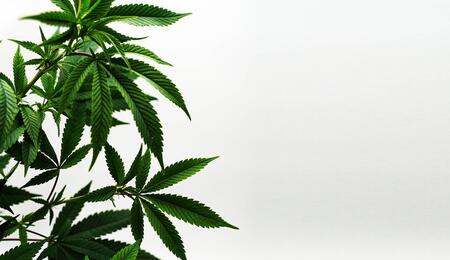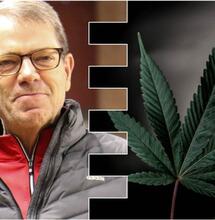Knowledge is Power!

We all know that studying is one of the keys to one's development and to a successful life. Transferring this from theory to practice, though, is a different picture altogether. In my case, I despised the education system of my country for a very long time, studying enough to pass the necessary examinations, but never really investing myself too far into the subjects. That was, until I discovered my passion for our favorite green plant.
The subsequent years spent studying its applications, history and meanings in different cultures around the world were quite a revelation. It was stunning to see how much information I could gobble up and retain. It even led me to invest myself into sharing and spreading as much information as possible about the subject. And that is when it hit me: education is the key to change.
The plant
When thinking about the present circumstances surrounding the social taboo that is Cannabis, the last century of misinformation on the subject is one that really jumps out. Not only the fact that racist slanders and absurd allegations have been stuck to the plant, but also the complacency with which the majority of people still believe it. Ask someone about Cannabis and chances are their answer will be, "I don't smoke." Mention any industrial use of the plant and their eyes usually widen in disbelief: the first step to breaking their preconceptions about the plant and the people who use it. But, as with the Cannabis plant, you can plant a seed in people's minds, but it needs to germinate on its own.
Even when talking with Cannabis enthusiasts, you often discover that knowledge about the basics of Cannabis is proportionally quite low. Somehow, many people believe that the substance's consumption innately imparts knowledge: "I know a lot about Cannabis, as I have been smoking for X-amount of time." You would be surprised how regularly people claim this. I was once even told by a gentleman that he knew "all there is to know about pot" because he had been smoking it for ten years.
This still makes me chuckle today, given that even the most highly regarded Cannabis activists, scientists, growers, etc. readily admit that the learning process is a continuous one, and that they have a lot yet to learn - especially given the amount of research being done at the moment throughout the world, and the amazing facts that are being uncovered, such as the cancer-curing properties of Cannabis!
At this point, it is important to mention that this is in no way a critique of the groups that were mentioned. In fact, it is important to rationalize and to keep in mind that the majority of people do not have easy access to the necessary information. Instead, they do the most natural of things: believe what they have been told, the statements embedded in their heads since childhood, backed by several generations' worth of misinformation. Withholding truthful information to this extent is clearly and undoubtedly counterproductive on every level. When you think about it, the objectives mentioned by governments worldwide regarding drug policy are simple: reducing crime and reducing substance abuse (and thereby its impact on public health).
20th Century
These are objectives that everyone can embrace. The problem lies within the fact that their (ineffective) methods of control have so far been expressed through repressive policies, and this even with regards to scientific research - until the later part of the 20th century, at least. Surprise, surprise: Cannabis consumption has not dropped, but rather increased, and the taboo surrounding it has steadily been reinforced, meaning that people are using it without understanding how it works.
And there in lies the problem: how can anyone be expected to safely use a substance, while being prevented from accessing any truthful information about it? An illustration of this was to be seen in the recent claims that were published about the link between Cannabis use and psychotic disorders.
In this case, what has been agreed upon is that there is no conclusive evidence linking adult Cannabis use and the development of psychotic disorders. The only link presenting any validity is related to under-aged use of the substance potentially encouraging the appearance of psychotic disorders in children with a genetic predisposition. No offense, dear prohibitionists, but whereas all agree that under-aged drug use is destructive, stopping children from accessing drugs is a utopia.
One needs only to point to the modern increase in drug use, despite the last century of 'war' against drugs, to demonstrate that the availability of drugs has never been higher. The answer to the under-aged Cannabis use dilemma is a complex one, but it seems clear that (just as with socially-accepted drugs, such as alcohol and tobacco) prevention is key. This does not include the misinformation still being spread around; but rather accurate, unbiased, scientifically-based conclusions.
CBD
Needless to say, this will not prevent children from using the substance - but it might give them the information they need to make an educated decision. In the specific case of psychotic disorders, it is interesting to see that one rarely reads about the anxiolitic and anti-psychotic effects of cannabidiol (CBD), a cannabinoid usually found in indica-dominant strains. Clearly, understanding the genetic diversity of the Cannabis plant, its medical benefits and the consequences of the different strains on the human body, as with any medicine, is crucial.
On a more day-to-day basis, the stereotypes surrounding Cannabis use are well known. Getting your facts straight and understanding the simple basics about Cannabis make the difference between reinforcing these stereotypes and dispelling them. And whereas Cannabis use can provide the user with new insight, truly learning about the plant necessitates a bit more action than simply rolling one up or filling a bowl. The ability of today's world to share information is higher than ever before, so by all means: be curious, get informed, stay critical and do your part to set things straight!



